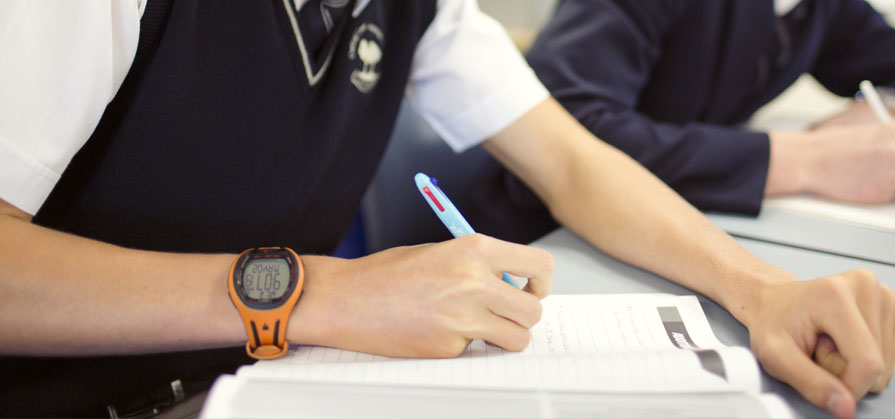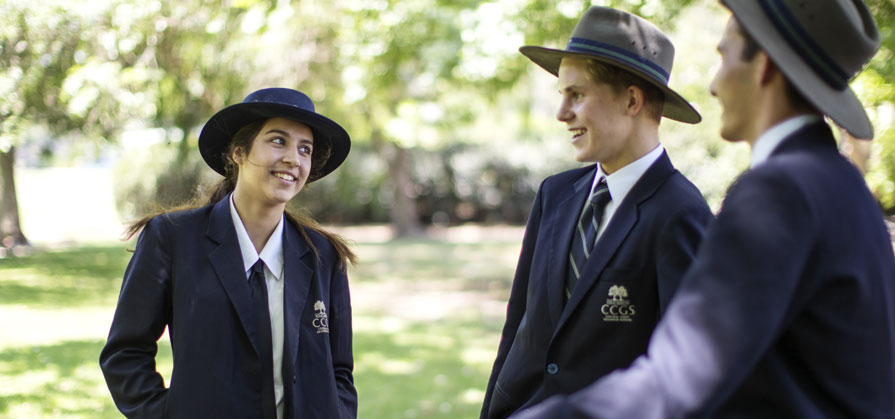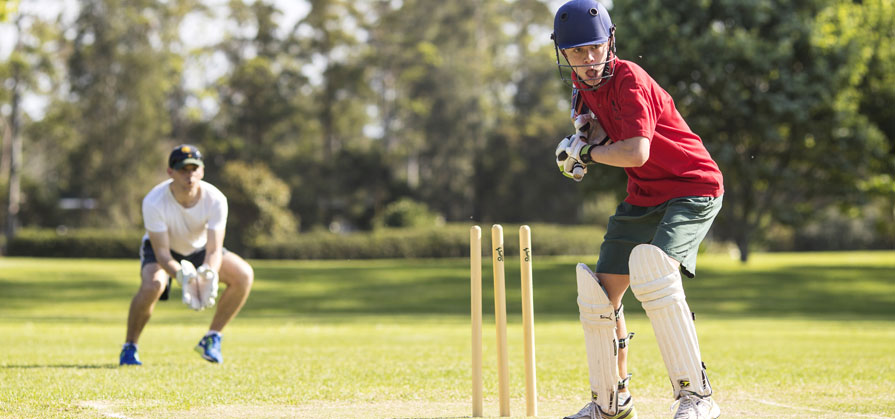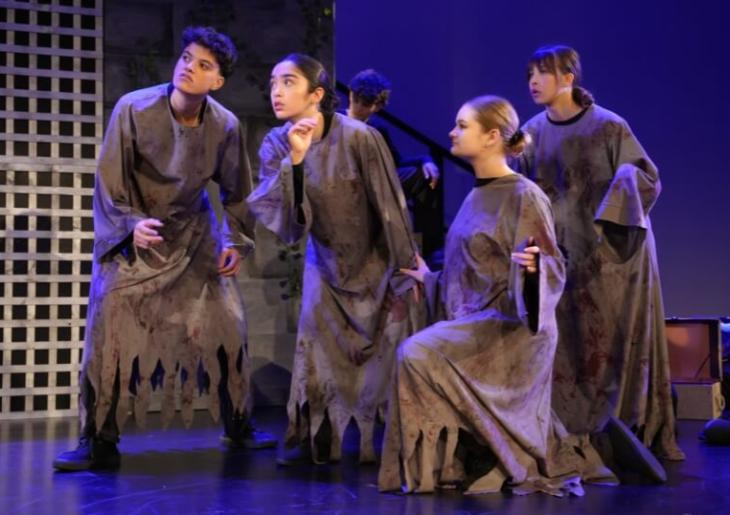Surviving the HSC
The year leading up to the Higher School Certificate (HSC) can be a stressful one, for both students and their parents but helping your child establish some good practices and study habits can help to reduce exam stress and anxiety and avoid the last minute study panic.

Get organised
- A diary and wall planner. Encourage your child to have both a daily diary and a wall planner for their home study area. The diary should be a place for recording daily homework and assessment task due dates, allocating revision time and breaking down assessment task requirements. The wall planner should record when all assessment tasks, tests and exams are taking place as well as any other major events that may impact on their study schedule (such as family holidays or commitments).
- Break down assessment tasks. By mapping out the requirements of each assessment task students are better able to see how to best take on assessment tasks in manageable chunks. This allows students to work on sections of the assessment task each day and avoid the ‘night before’ chaos which can cause angst for the whole family.
- Get an outside person to help organise their time. If someone else (such as a teacher, a year coordinator, a parent, an older sibling or a friend who is a recent HSC graduate) helps guide the organisation of their time the student often feels a greater sense of obligation to commit to the schedule. An outside set of eyes also helps with a balanced schedule including keeping up with exercise, friendships and getting enough rest. Some students are then able to manage their schedule on their own while some still need regular input by a parent or teacher to help keep them on track
Identify areas of weakness and strength.
Encourage your child to review exams and assessments from Year 11 and identify 3 areas of weakness for each subject that can be improved upon during Year 12. Many students disregard the importance of Year 11, however it’s actually the year where many of the essential HSC skills are introduced, fined tuned and then built upon during Year 12.
After each assessment it’s important students act upon the advice given by teachers and the mistakes made. In an ideal situation, if your child can manage the time, encourage them to complete the task again with the teacher’s feedback in mind and with the goal of improving those areas and resubmit it to the teacher.
While the mark for that particular assessment won’t change, the student will be better prepared for the next time they are assessed (which will most likely be the trial or HSC exams).
Stay on top of summaries.
By Year 12 students should be aiming to do about 3 hours of school work a night. Each night immediate homework should be addressed first, followed by work on assessment tasks. The revision and consolidation of past topics should not be ignored. While revision might not seem to be the most important, immediate or critical task in comparison to homework and assessment tasks, it’s important not to put it on the back burner as summaries are very important in the long term.
Encourage your child to do summaries as each unit of study is finished and factor them into their regular study timetable. Leave them too long and it becomes too overwhelming to try and summarise a whole year of learning at one time.
Review and complete past HSC papers.
When reviewing past HSC papers encourage your child to read the Marker’s Guidelines and the Notes from the Marking Centre – and not just the comments about where students did well but to also read the comments on what didn’t go to plan as these are the areas students should aim to avoid.
Encourage your child to complete the paper or relevant section of the paper with or without a clock, keeping in mind the Notes from the Marking Centre, and once completed to hand it in to a teacher at school to get some feedback.

Exposure to many and varied resources.
To keep study fresh and positive encourage your child to access everyone they can – past students who recently completed the HSC, subject teachers, Heads of Department, their Year Coordinator, the school’s careers advisor or counsellor, as well as external resources to the school including:
- Outside providers that offer HSC revision lectures and study tips, choosing only the topics or areas that are relevant to them. This can provide a different voice to their school teachers and expose them to different viewpoints. Sometimes just a slightly different angle or teaching style can have a positive impact on a student’s understanding of a topic.
-
Study groups. Forming study groups with friends or classmates and meeting regularly to informally discuss certain topics provides students with a non-threatening dialogue while aiding to clarify each other’s thoughts. Public libraries, as well as your own school library, often have rooms that can be booked for these types of study groups.
-
HSC support websites. The NSW Education Standards Authority website http://www.boardofstudies.nsw.edu.au/hsc/ has tips on how to study, work samples and past HSC papers together with Marker’s Guidelines and Notes from the Marking Centre.

Practice handwriting.
As most exams are still handwritten, and some 3 hours long, encourage your child to do exam practice with a pen and paper rather than on screen. It is also important they trial different pens to find ones that are comfortable and easy to write with and to practice writing for extended periods of time under pressure.
Balanced Lifestyle.
Encourage your child to keep up with exercise (particularly team sport), cocurricular activities and to keep their part time job. Organising their time to study hard when they plan to and enjoying other activities away from the desk will help with study/life balance. It is important your child keeps their friendships alive during the HSC year.
While there may be a degree of competiveness among peers, as the HSC year starts to unfold that is the time students will need the support and help of each other.

What about Social Media?
Wouldn't we all just love to tell our teens to get rid of social media altogether, but as most parents will know this is not a realistic option. Instead, encourage your child to recognise that there can be a time and place for social media interaction.
While most students by Year 12 can exercise self-control to turn off social media, for some it may be necessary to remove the mobile phone from their room so that it isn’t a distraction while they study.
In a perfect world our kids would be incorporating all of these positive study habits into their final year of school, however that is not always going to be possible. By focusing on including even just a couple of the above tips into their current study practices hopefully your child (and you!) will be able make the HSC year a little more stress free.
Debbie Curtis is the Dean of Senior Studies and a Senior School teacher at Central Coast Grammar School (CCGS). Debbie has taught at CCGS for 29 years, including 7 years as the Deputy Head of Middle School. She currently teaches HSC Ancient History and HSC English. Debbie has 3 children of her own who have all survived the HSC.




